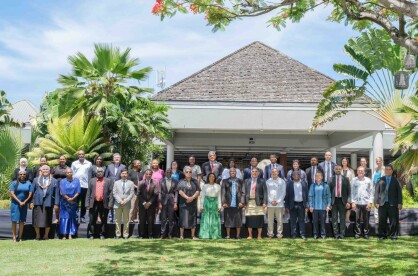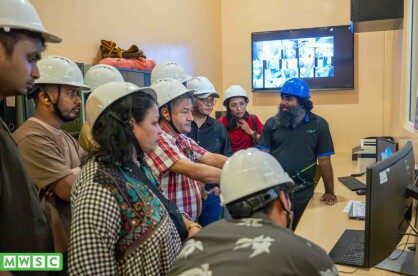The Maldives has long been vulnerable to the adverse effects of climate change and natural disasters. Despite the ongoing efforts to implement long-term strategies to mitigate these challenges, the country experienced one of its most devastating natural disasters nearly two decades ago. On December 26, 2004, the Maldives was struck by a catastrophic tsunami triggered by a massive 9.1-magnitude earthquake off the coast of Sumatra, Indonesia.
The tsunami caused unprecedented destruction across the Maldives, with waves as high as 14 feet inundating several islands. Out of the country’s nearly 200 inhabited islands, more than half were significantly affected, with some islands even being rendered uninhabitable. The disaster claimed the lives of 82 Maldivians, injured hundreds, and displaced over 15,000 people, leaving many without homes, livelihoods, or basic necessities. Economically, the tsunami inflicted a severe blow to the Maldives, as the country’s tourism and fishing industries—its primary sources of income—were heavily impacted. Infrastructure, including homes, schools, health facilities, and transportation systems, sustained extensive damage. The total economic loss was estimated at over $470 million, equivalent to nearly 62% of the country’s GDP at the time.
In the aftermath of the 2004 Indian Ocean tsunami, the Maldivian government, with substantial support from international aid, initiated extensive recovery and reconstruction efforts. Amid the devastation, the Maldivian community demonstrated extraordinary resilience and solidarity. Emergency responders and front liners worked tirelessly to evacuate and assist those affected, while communities across the islands united to send care packages and offer support to their neighbours in need. This collective spirit became a testament to the strength and compassion of the Maldivian people.
In honour of this resilience, December 26 is now observed annually as a day of remembrance and reflection. It serves not only to commemorate the lives lost in the tsunami but also to celebrate the unity and fortitude that emerged in its aftermath.
As the nation marks 20 years since the disaster, the Maldives has taken significant steps to bolster its disaster preparedness. The National Disaster Management Authority has introduced the Maldives Disaster Risk Reduction Strategy 2024–2030. This six-year plan is designed to fortify the country’s infrastructure, homes, and environment against climate hazards and other potential disasters. Although the Maldives has not experienced a tsunami of similar magnitude since 2004, its status as a low-lying nation necessitates constant vigilance and proactive planning.
The Disaster Risk Reduction Strategy also aims to build resilient communities, enhance disaster preparedness, and align with the Maldives’ sustainable development goals. This forward-looking plan highlights the nation’s commitment to safeguarding its people and preserving its unique environment for future generations.






